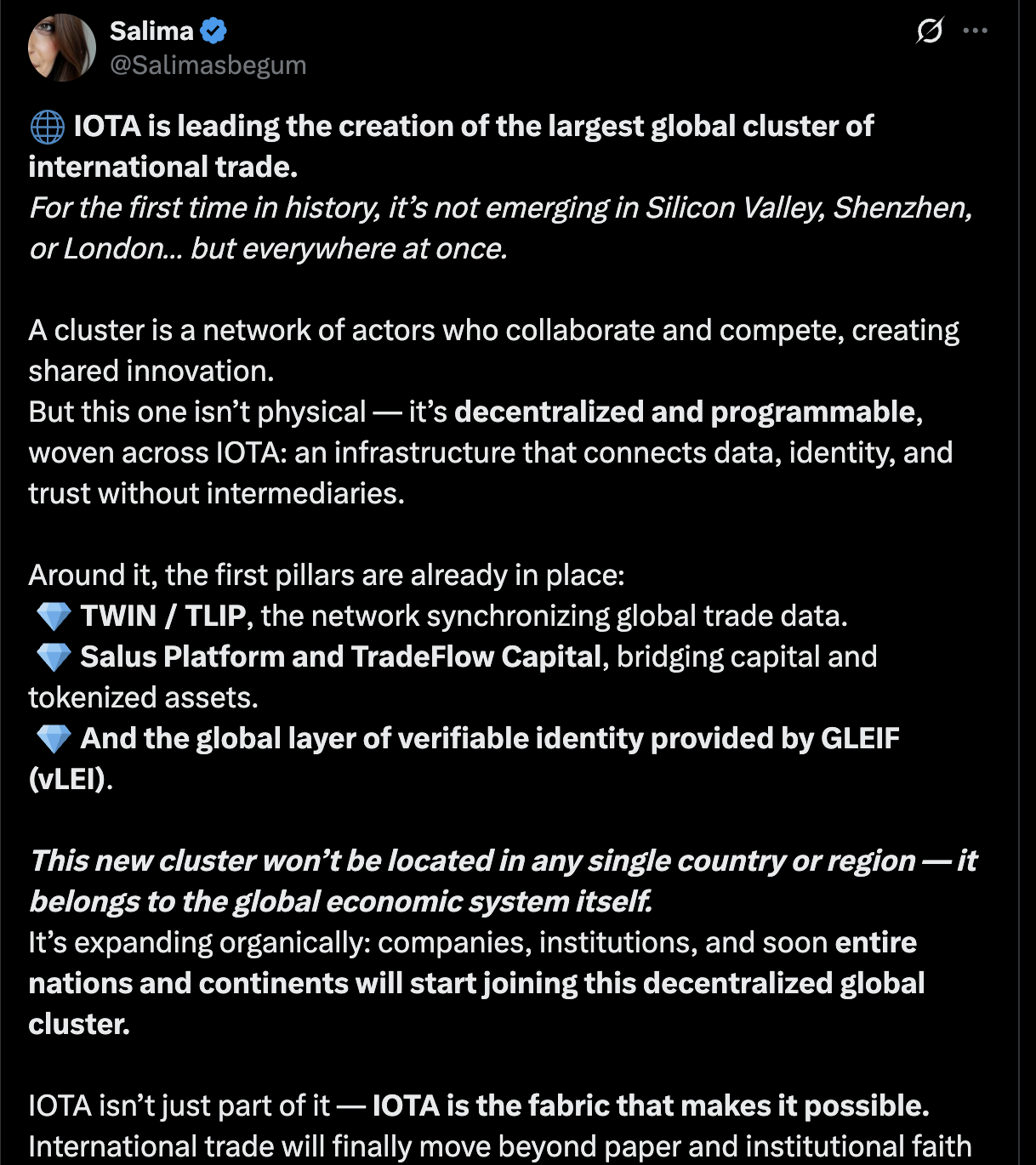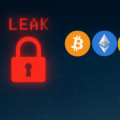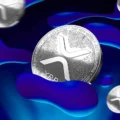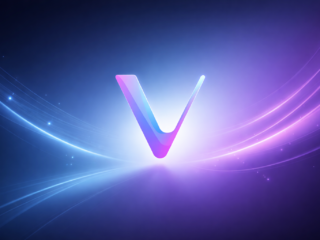IOTA is setting up the world’s first decentralized trading cluster with TWIN
- The IOTA Foundation has launched the world’s first decentralized global trading cluster with its Trade Worldwide Information Network Initiative TWIN.
- In several collaborations and through decentralized identity applications, IOTA wants to improve the efficiency of global trade worldwide.
The IOTA Foundation is leading a project that can become nothing less than the world’s first decentralized global trading cluster.
In the past, the global trading infrastructure was dominated by large intermediaries, isolated platforms and opaque processes. These are primarily actors who are often responsible for high costs and slow processing.

Those: XWith TWIN, which is built on IOTA’s decentralized stack, open access is promised. This means any business can participate from any location, share verifiable data and open up new digital commerce networks, not just the traditional hubs.
For example, IOTA has introduced trading innovations in Africa through Project TLIP, a regional trading platform using TWIN technology, showing how the decentralized cluster approach can gain a foothold in emerging markets.
The model can change the power dynamics in supply chains. With standardized identities, on-chain verification, and peer-to-peer data flows, the system reduces reliance on central gatekeepers. This means faster documentation, fewer delays at cargo ports and greater access to trade finance for those who have previously been underserved.
The issues that the initiative may face include global interoperability requirements, alignment between different jurisdictions, regulatory compliance, data management and upgrading of legacy systems. The cluster model will require strategic partnerships and real-world pilots to demonstrate its scalability and reliability.
In July 2025, the TWIN Protocol white paper was updated to outline a more detailed framework for digital trade operations, including documents, proof of compliance, proof of freight and corporate identities. The system has already demonstrated interoperability with global standards such as GS1 and EPCIS 2.0, allowing claims and transactions to be verified without reliance on a central authority.
Earlier this month, the World Economic Forum named IOTA as one of the leading technologies shaping the future of digital commerce. In its white paper “Promoting Digital Trade: Lessons from the UAE TradeTech Regulatory Sandbox,” WWF highlighted IOTA’s participation. The white paper makes clear how the Trade Worldwide Information Network can streamline international trade processes while taking advantage of the Rebased upgrade.
IOTA has also expanded its focus to digitize rare earths trade, partnering with Salus to build blockchain-based “digital trust rails” that ensure transparency and traceability throughout the supply chain of these minerals. It aims to close the $2.5 trillion global trade finance gap and the $4.7 trillion rare earths investment gap, unlocking a total of $7 trillion in locked-up capital.





No Comments